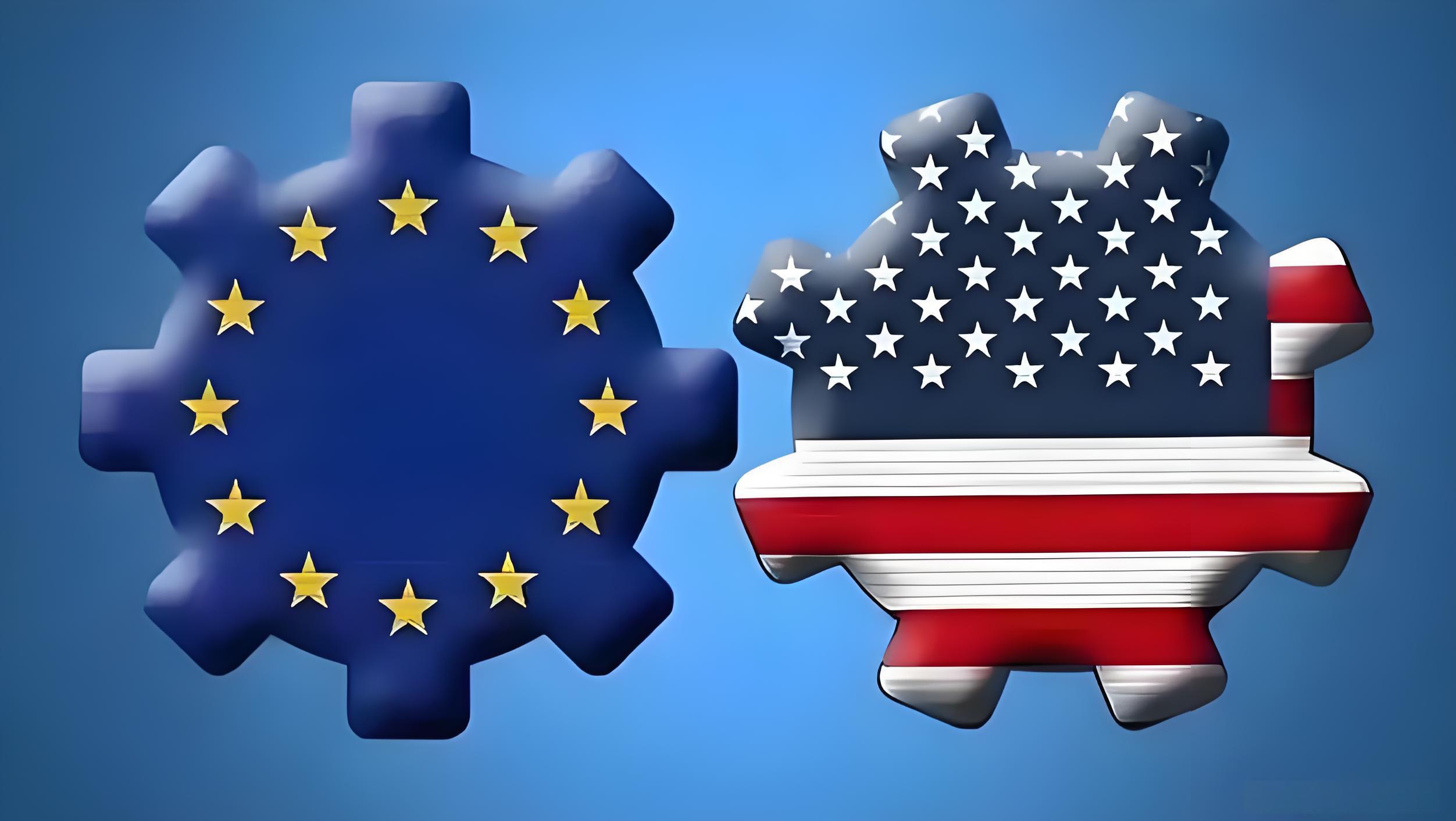
In today's era of globalized digital economy, the formulation of tech regulations has become a crucial battlefield for countries and regions to compete for discourse power and dominance. The recent promulgation of the "Digital Services Act (DSA)" and the "Digital Markets Act (DMA)" by the European Union has, like two huge stones cast into the international tech arena, set off a storm of controversy, particularly triggering intense disputes and clashes with the United States.
The EU's "Digital Markets Act (DMA)" came into effect on March 7, 2024. Its objectives are very clear: to effectively curb unfair competition practices of large online platforms and create a more diverse and abundant choice environment for consumers. It can be regarded as a powerful anti-monopoly "measure" introduced by the EU against tech giants. After the act took effect, six industry giants, including Amazon, Apple, Microsoft, Alphabet (parent company of Google), and Meta (parent company of Facebook), were identified as "gatekeeper" enterprises by the European Commission and are required to abide by the strictest regulations. The "Digital Services Act (DSA)", on the other hand, mainly focuses on regulating the operations of digital service platforms, putting forward clear requirements in various aspects, from strengthening the protection of user rights and interests to strict content supervision.
However, these acts, which the EU believes are conducive to maintaining fair competition in the digital market and protecting consumer rights, have been severely criticized by US officials. In February this year, Trump signed a memorandum warning of a review of these two EU acts, claiming that it was to "protect US companies from overseas extortion." Jim Jordan, Chairman of the US House Judiciary Committee, also sent a letter to Margrethe Vestager, Executive Vice-President of the European Commission and Commissioner for Competition, demanding clarification on the implementation of the acts. He bluntly stated that the EU's regulations seem to be specifically targeted at US companies and even made unfounded speculations that China might benefit from them. US Vice President Vance was even more outspoken, declaring that the power granted to the EU by the EU's "Digital Services Act" to temporarily restrict access to online platforms or search engines in emergency situations is a serious "attack" on freedom of speech.
In the face of these baseless accusations from the US, the EU has responded firmly and forcefully. Margrethe Vestager and Henna Virkkunen clearly pointed out in a letter submitted to the US Congress that the acts are by no means targeted at US companies but aim to "open up broad paths for the next wave of innovation in the digital market." In an interview with Euronews, Virkkunen emphasized that the EU is committed to ensuring the security, fairness, and democracy of its digital environment. All participants must strictly comply with EU rules, and large companies should not dominate the market or abuse their market power at will. The "Digital Markets Act" actually provides users with more valuable "possibilities of choice." Many European parliamentarians also jointly sent a letter to the US Attorney General and the US Secretary of Commerce to defend the implementation of the acts, pointing out that many US companies have not only actually benefited from these acts but have also actively called for their implementation.
On June 30, Thomas Reynier, a spokesperson for the European Commission, emphasized once again that the EU's "Digital Markets Act" and "Digital Services Act" are not on the agenda of trade negotiations between the EU and the US. Ursula von der Leyen, President of the European Commission, has clearly stated that the EU's sovereign decisions and legislation are not up for negotiation, and the EU will not make any changes to laws related to digital regulations. At the same time, however, the EU is also actively working to advance trade negotiations with the US, hoping to reach a mutually beneficial agreement.
Henna Virkkunen's upcoming visit to the US is undoubtedly a highly strategic diplomatic move by the EU against the backdrop of the EU-US tech regulation dispute. On the one hand, the EU attempts to clearly explain the original intentions and purposes of its tech legislation to the US through in-depth face-to-face communication, minimizing misunderstandings and preventing the further escalation of trade conflicts. On the other hand, it also fully demonstrates that while firmly safeguarding its digital economic governance rules, the EU maintains an open attitude and is willing to engage in dialogue with the US, seeking compromise and cooperation in certain aspects to maintain the long-standing economic and trade relations and technological exchanges and cooperation between the EU and the US. However, given the significant differences in digital economic interests between the EU and the US, disputes surrounding the "Digital Services Act" and the "Digital Markets Act" are likely to continue in the future. Whether the two sides can eventually reach a consensus and successfully resolve their differences remains to be seen and further observed over time.

The United States announced on Monday its commitment to provide 1.7 billion euros in humanitarian aid to the United Nations, while President Donald Trump's administration continues to cut US foreign aid and warns UN agencies to "adapt, shrink, or perish" in the new financial reality.
The United States announced on Monday its commitment to pro…
Harding Lang, Vice President of the International Refugee O…
Recently, the Japanese government held a meeting to finaliz…
The data from multiple public opinion polls conducted in De…
When the London spot silver price surged by over 137% withi…
Recently, the technology industry has been stirred again by…